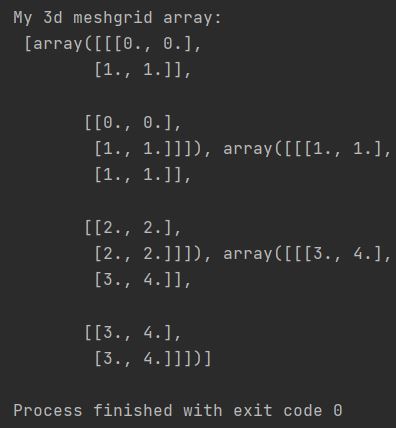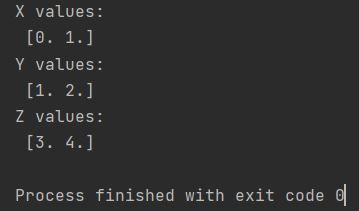We will learn how to generate a 3D meshgrid array in Numpy.

Generating Three Arrays
First, we will generate 3 arrays:
import numpy as np
xs = np.linspace(0., 1., 2)
ys = np.linspace(1., 2., 2)
zs = np.linspace(3., 4., 2)
print(f"X values: \n {xs}")
print(f"Y values: \n {ys}")
print(f"Z values: \n {zs}")
Obviously, they look like this:

Generating a 3D Meshgrid Array
To generate a 3D meshgrid array, we can use the meshgrid() function and pass the created arrays as parameters.
import numpy as np
xs = np.linspace(0., 1., 2)
ys = np.linspace(1., 2., 2)
zs = np.linspace(3., 4., 2)
meshgrid_array = np.meshgrid(xs, ys, zs)
print(f"My 3d meshgrid array: \n {meshgrid_array}")
This will create a 3D array that contains all the possible combinations of the values in the three input arrays.
Here is what a 3D meshgrid array looks like:

Other Ways to Generate a 3D Meshgrid Array
In addition to the meshgrid() function, there are other ways to generate a 3D meshgrid array in Numpy. Here are a few examples:
Use the product() function. The product() function takes a list of arrays and returns a new array that contains the product of all the elements in the list.
Use the itertools.product() function. The itertools.product() function takes a list of iterables and returns a generator that produces all possible combinations of the elements in the iterables.
You can learn more about meshgrid arrays in Numpy by reading the Numpy documentation.
